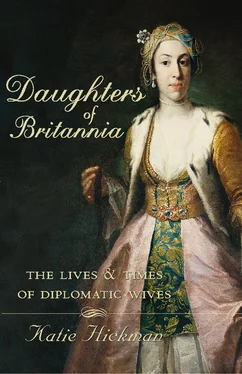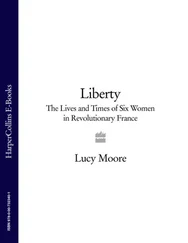1 ...6 7 8 10 11 12 ...22 But, as Lady Mary had found, the ‘tender passions’ provoked by the additional stress of travelling with small children were often difficult to bear. Catherine Macartney, yet another diplomatic wife to find herself posted to the wilds of Chinese Turkistan, describes the extraordinary precautions which she took to ensure the safety of her small son. Eric, her eldest child, was born in 1903 when the family was in Edinburgh on home leave, and was only five months old when they set off back to Kashgar. ‘It seemed a pretty risky thing to take so small a traveller on a journey like the one before us,’ Catherine wrote. Nonetheless, knowing what was ahead of them, she did all she could, almost from the day Eric was born, to prepare him for the journey. To harden him up she took him out in all weathers, and only ever gave him cold food (once they were in the Tien Shan Mountains she knew that it would be impossible to heat up bottles of milk). Eric apparently throve on it. Catherine described their travelling routine:
When we were in the mountains, his bottles for the day were prepared before starting the march, and carefully packed in a bag to be slung over a man’s back. As they needed no heating, he could be fed when the time came for his meals, and just wherever we happened to be. And the poor little chap had his meals in some funny places – cowsheds, in the shelter of a large rock, or anywhere where we could get out of the wind.
At night he slept in a large perambulator which they had carried along especially for the purpose. According to Catherine, ‘He stood the journey better than any of us.’
Five years later, in 1908, when the family went home on leave again, they were not so lucky. Eric was now five, his sister Sylvia two and a half. Flooding rivers had blocked the usual route through Osh, and instead the Macartneys decided to trek north over the Tien Shan, and then through the Russian province of Semiretchia, from whence they could reach the railway at Aris, just to the north of Tashkent. Catherine recorded it all in her diary. Despite her misgivings about travelling in the summer heats, she was overwhelmed by the beauty of the lakes and flower-filled meadows they passed through. The two children, who rode on pack ponies in front of two of the consulate servants, seemed to enjoy it too. It is not long, however, before a more anxious tone begins to colour her entries: ‘ Thursday, July 23rd. We have beaten the record today and have done four stages, reaching Aulie-ata at about four o’clock this afternoon. Poor little Eric has been so ill all day with fever; but the travelling has not seemed to worry him much, for he has slept the most of the time in spite of the jolting. Our road has been across the grassy steppes and the dust was not so bad.’
The next day, to her relief, Eric was much better, and she was able to hope that it was just ‘a passing feverish attack’. Two days later it was clear that it was something much worse.
Sunday, July 26th. Today’s march has been done with the greatest difficulty, for the children have both been very unwell and can take no food whatever. They have not seemed themselves for some days, and today they have been downright ill. To make matters worse, I suddenly had an attack of fever come on, which decided us to stop at the end of our second stage at Beli-Voda. Eric and I had to go to bed, or rather to lie down on hard wooden sofas, and it was pitiable to see poor little Sylvia. She was so ill and miserable and yet wanted to run about the whole time, and seemed as though she could not rest. There was little peace for anyone, for we could only have the tiny inner room that was reserved for ladies, to ourselves. The whole afternoon travellers were arriving and having tea in the next room, talking and laughing and making a distracting noise. Happily we had the place to ourselves for the night. I am much better this evening, but the children seem to be getting steadily worse and we are becoming anxious about them.
The following day the two children were so ill that the Macartneys got up at dawn and made haste to the town of Chimkent, where they were told there was a doctor. The doctor advised them to stop travelling at once and, to Catherine’s relief, found rooms for them in an inn near his house.
It is delightfully cool and restful here, after the hot dusty roads [she wrote in a snatched moment] and a few days’ rest will, I hope, set us all up. The first thing we did was to give the children a warm bath, put them into clean clothes and get them to bed. They looked so utterly dirty and wretched when we arrived that I felt I must cry; and they were asleep as soon as they got between clean sheets … a sleep of exhaustion. Both of them have lost weight in the last few days.
It was the last entry she was to make for many weeks.
On 23 August Catherine finally resumed her journal.
Our two or three days here have lengthened into nearly a month, and a time of awful anxiety it has been. The children, instead of recovering in a few days, developed dysentery, and to add to our troubles Nurse took it too. For three weeks it was a fight for Eric’s life and several times we thought we would lose him. Sylvia, though bad enough, was not as desperately ill as Eric … My husband and I did all the nursing and during that time we neither of us had a single night’s rest, just snatching a few minutes sleep at odd times.
In spite of their rudimentary lodgings – two rooms so small that there was only space for the children’s and the nurse’s beds – they were comforted by the extraordinary kindness of the local people. The Russian doctor visited them sometimes as many as three or four times a day. And there were others, too, ‘who, simply hearing that we were strangers and in trouble, were most helpful in sending us goat’s milk, cake, fruit, and delicacies. It is when one is in such straits as we were that one discovers how many kind people there are in the world. But I never imagined that anyone could receive so much sympathy and practical help from perfect strangers as we did during that anxious month.’ 17
The Macartneys had been on the road for more than 800 miles before they finally arrived, exhausted, in Aris. From here they were able to pick up the Tashkent – Moscow train, and travelled onwards, first to Moscow, and then to Berlin via Warsaw. Although Eric suffered several relapses during that time, the family arrived safely in Edinburgh, three long and painful months after they had set out.
Like Mary Wortley Montagu with her traineaus, and Mary Fraser with her fleet of Chinese river boats, diplomatic women over the centuries have been obliged to take what transport they could find. Yet another Mary – Mary Waddington, who travelled to Russia to the Tsar’s coronation in 1883 – had several luxuriously appointed private railway carriages at her disposal, but a diplomatic wife was just as likely to find herself transporting her family by camel, yak, horse, palanquin, coolie’s chair, house-boat, cattle-truck, tukt , * sleigh or tarantass † as by more conventional methods.
Travelling to the most far-flung diplomatic posts has remained a logistical problem well into the present century. One diplomatic wife recalls her journey to Persia in 1930, with her husband and English nurse, her children Rachel, aged two, and Michael, aged nine months, and seventy pieces of luggage. The quickest route in those days was by train, through Russia, although it still took two weeks. There were no disposable nappies in those days, so the baby’s washed napkins had to be hung out on rails in the corridor to dry, and when it came to crossing the Caspian Sea both her husband and the nurse were so sick she had no one to help her at all. ‘I can still see my poor husband with Rachel on his lap, being sick, and she, infuriatingly cheerful, saying, “What’s Daddy doing that for?”’
Читать дальше












